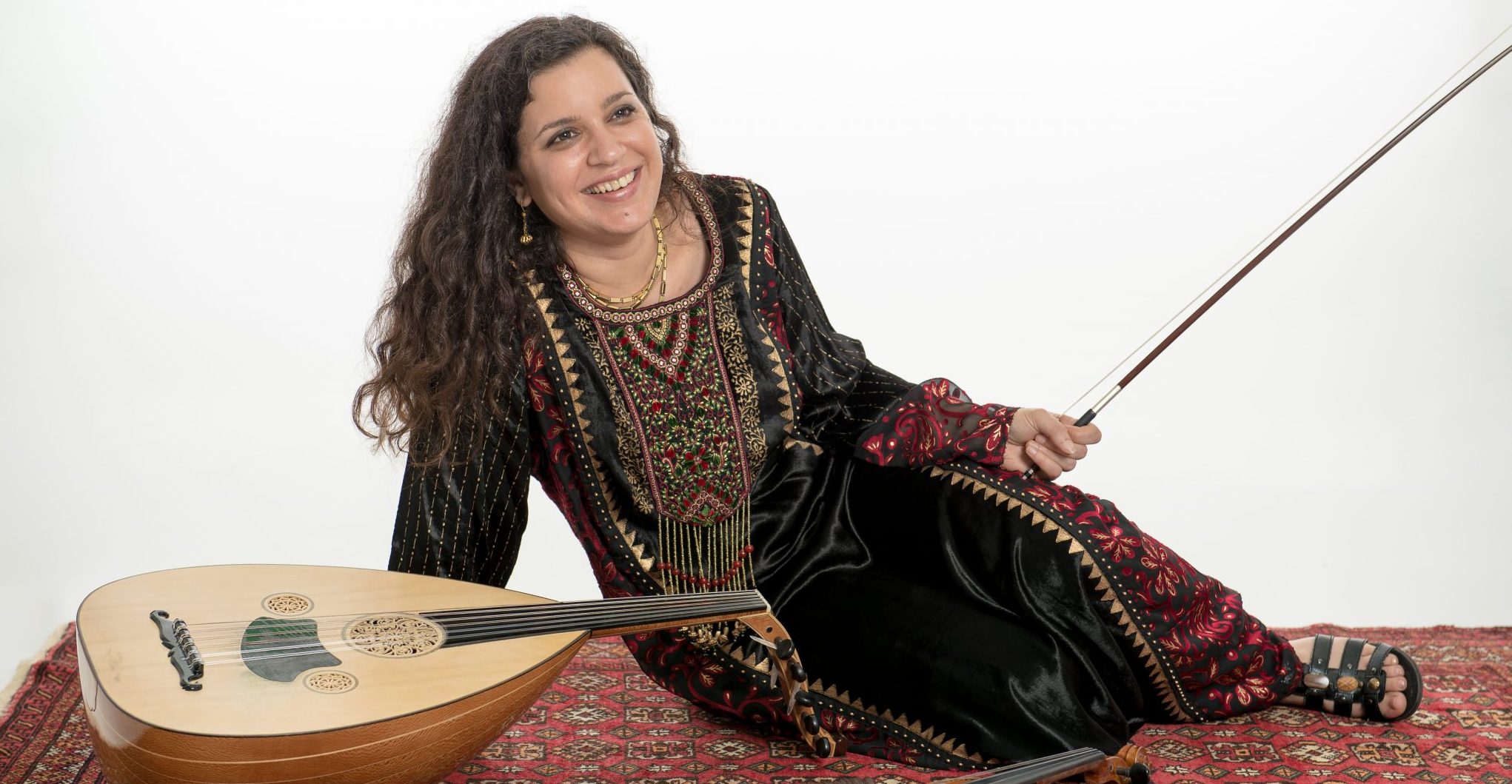Bloomington violist Dena El Saffar grew up surrounded by Arabic music, but it wasn’t until she visited Iraq that she finally understood it. When she was 17, the Iran-Iraq war had ended, and she was able to accompany her father on her first trip to visit family in the capital city of Baghdad. By Burton Runyan, Adapted from Classical Music Indy’s NOTE Magazine.
A Viola Plays in Baghdad
“I’ve reflected back so much on that trip,” she says. “There was a lot of build up, wanting to go—it started really young for me.” It was the perfect age to appreciate the journey. “At that age, you really start to become more self-aware. Asking yourself, ‘Who am I compared to my peers?’ I wanted to be an individual and to know my roots instead of being like everyone else.”
El Saffar is glad she made the trip when she did. Shortly after her return, the Gulf War erupted, followed by a series of conflicts that still impact the region. “It was as if I had a premonition I may never be able to go back, because I told myself, ‘I’m going to absorb every experience, every landscape, every building.’ I don’t think I’d felt that way about anything before. I think that awareness deepened my experience there.”
Her age also afforded another moment of serendipity. Growing up in the suburbs of Chicago, El Saffar was an accomplished violist. She was preparing to go to conservatory to study classical music and brought her viola on the trip to stay in practice. When El Saffar’s cousins asked her to play along with an Iraqi pop song, she obliged, and their excitement set her life on a new course.
“I had been playing very serious, classical things. And as soon as I started playing [with my cousins] it was like a big dance party,” El Saffar says. “I don’t think anyone had really danced to my viola music before. That was a pivotal moment for me.”
After returning from Iraq, El Saffar formed the Bloomington-based band, Salaam. Today, they get radio airplay, take interviews with National Public Radio and play for crowds at festivals, pop-up concerts and private parties across the country.
“My favorite situation is playing for a mixed audience,” she says, describing the cultural interactions that happen when Hoosiers hear her perform a classical vocal tradition that has been around for centuries—the Iraqi maqam.
Americans tend to be very circumspect and stoic—even meditating—whereas people from the Middle East clap and dance, which brings about a fun realization for Americans who haven’t experienced the music as it’s played on the streets of Baghdad. “It’s such a loosening up, and I love that because that’s the kind of cultural interaction I love to create. It’s humanizing, which is what we all need right now.”
That trip to Iraq helped El Saffar connect to her family roots and introduced her to a new genre of music, showing her how music can bring people together across boundaries.
One of the things that has stayed with me is the soundscape in Baghdad. All the different mosques broadcast the call to prayer at the same time. It sort of clashes in a really great way. You hear the near ones and the far ones, and they’re all in different keys and voices.”
El Saffar found beauty in classical music and discovered humanity on the streets of Baghdad. Today, she brings the two together in the heart of the Rust Belt.
To learn more about Dena El Saffar and her band Salaam, visit their website here.







Leave a Reply